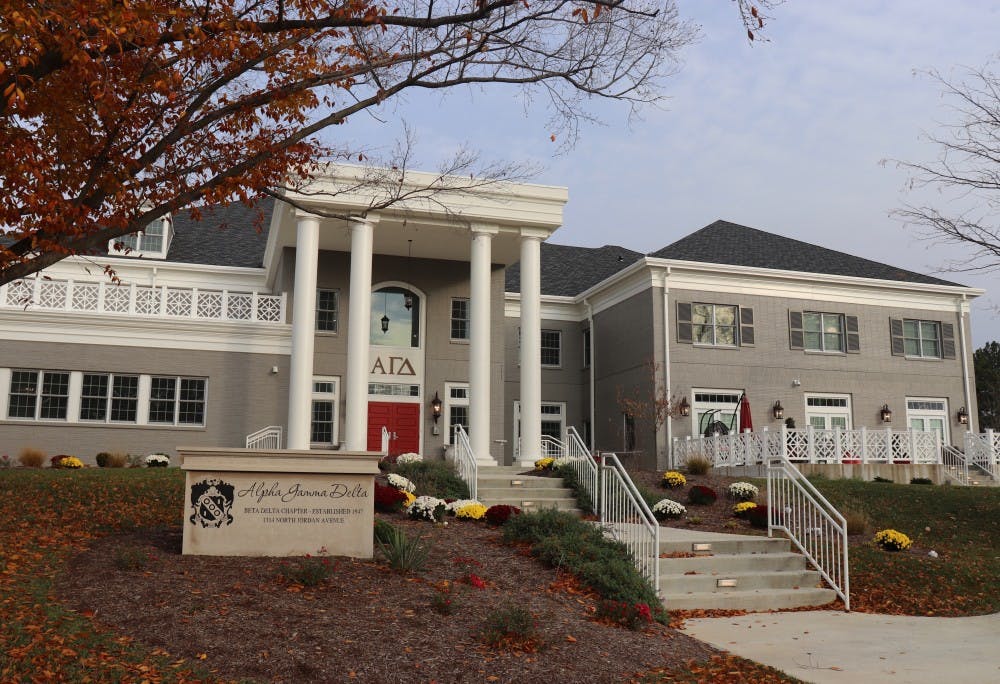Turning off floor heaters and shutting down computers may sound simple, but it’s these small practices that helped the Cyberinfrastructure Building win the IU Energy Challenge.
The Cyberinfrastructure Building was the overall campus winner as well as the academic and administrative building winner. Campus View Apartments, Cook Hall and Alpha Gamma Delta won the residence hall, athletic facility and greek house competitions respectively.
According to data collected by Sustain IU, University buildings saved 760,314 kilowatt hours of energy and 877,416 gallons of water this year, reducing the University’s carbon footprint by 566 metric tons.
The Energy Challenge is an annual month-long competition where campus buildings compete to save the most energy and water. Sustain IU measured energy and water usage from these buildings from Oct. 8 to Nov. 2 to determine the winners.
“Overall, the culture of our building is to be environmentally friendly,” said Noma Maier, a Cyberinfrastructure Building Green Team leader. Green Teams are informal groups of faculty and staff on campus who encourage environmentally friendly practices at IU.
Maier said the team and other staff in the building used simple practices such as shutting off lights or technology to reduce the amount of energy they used.
Staff turned off floor heaters in areas where lots of people gathered to use the group’s personal heat to warm them. One staffer suggested covering refrigerator cases for food at the building’s cafe to stop cold air from escaping and wasting energy.
Maier said the building’s Green Team members try to remain active throughout the year and to encourage staffers to be environmentally conscious.
“I think that other buildings can benefit from having a strong Green Team that engages with their building residents and, again, just tries to keep that message out there all the time,” Maier said.
Ashlee Wilson Fujawa is a sustainability specialist for Sustain IU. She said the small changes individuals take to improve their environmental practices can have a large effect.
“So often, there are huge issues that come at us everyday, but small changes really impact our personal footprint, which contributes to a collective impact,” Wilson Fujawa said.
She said often people don’t realize simple things they already do saves energy and water, such as turning off lights and taking short showers. The challenge is designed to encourage these behaviors and new energy saving practices.
“It’s an opportunity to thank people for what they’re doing and ask them to make some of those smaller tweaks to move forward,” Wilson Fujawa said.
Those small practices save money as well as energy. Maier said when she speaks about energy use at IU, she points out that small devices such as a desktop fan typically only use roughly a penny’s worth of energy in a day. However, this energy can end up costing thousands of dollars a day when everyone uses these small devices.
“We’d much rather use that money to support our mission of education and research rather than pay for electric costs or perhaps a device that nobody needs to have plugged in,” Maier said.




